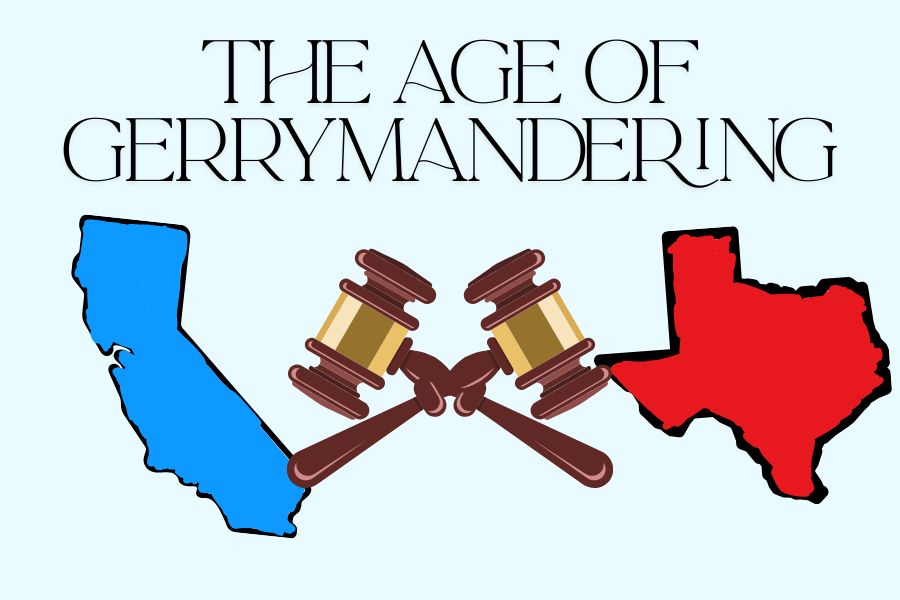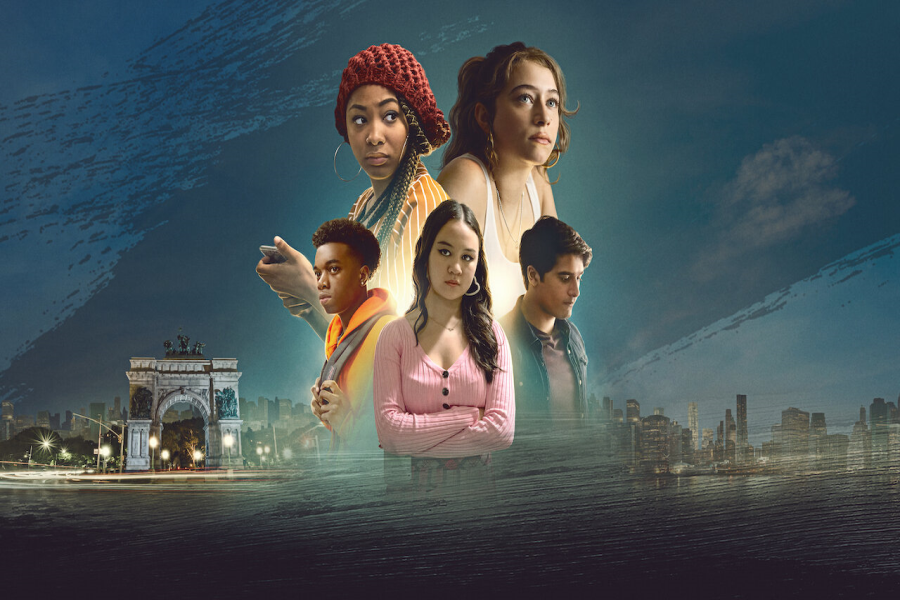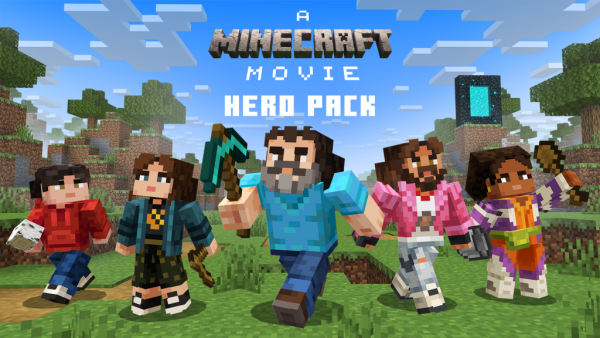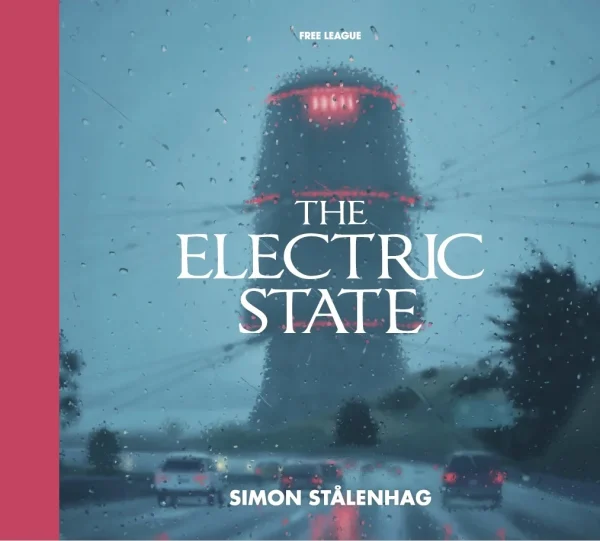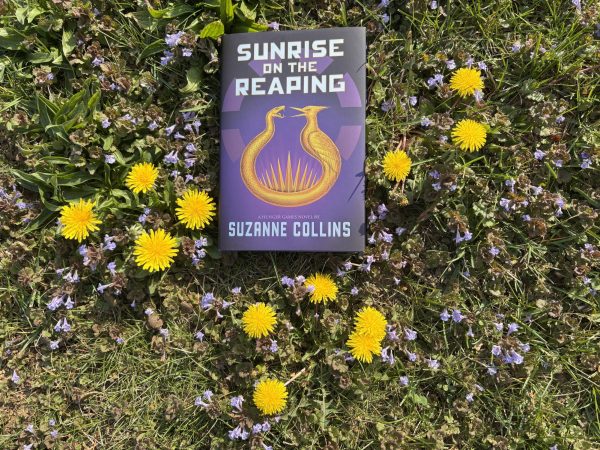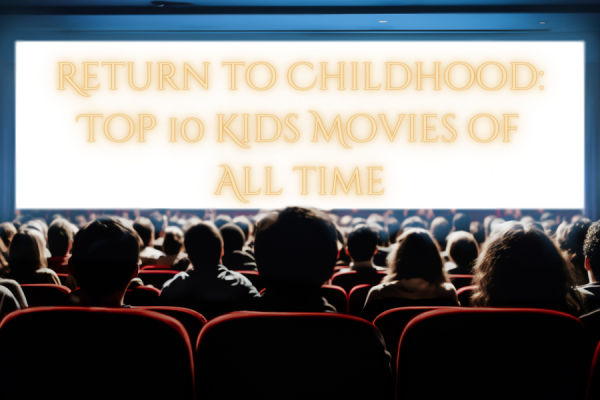‘Grand Army High School’: Normalizing trauma or raising awareness? (Review)
REAL LIFE BATTLES The Netflix original series “Grand Army High School” explores controversial topics that affect everyday teens. But does the graphic nature desensitize viewers to the real situations?
It took Netflix’s original new series, Grand Army High School, less than ten seconds to get viewers hooked just by their opening theme, with its intriguing phrases like “I’m marching into battle” and “I’m scared” flashing across the screen accompanied by the blurred face of the main character.
This fictional story leads with a band of students finding, or more like “fighting” their way through a twisting tale of surviving the realities of high school. Though the show is criticized for being overly ambitious, it is not unexpected with its presentation of controversial topics.
Starting off with a bombing in Brooklyn, NY, which disrupts the school/life setting, the first episode gives viewers something to cling to. This bombing is the start of many unfortunate and traumatic experiences the five main characters have to suffer while the series loosely follows an adapted version of Katie Cappiello’s playwright, Slut: The play in just nine episodes.
Joey Del Marco (Odessa A’zion), the main character of the series is a sixteen-year-old girl, living the stereotype of being an ‘it’ girl in the sense that her only ambition for the year is to become the dance team captain. However, as the show quickly projects the darkest themes of adolescence and the typical ‘worst case scenario’ plot, Joey becomes the victim of sexual assault in which she is brutally raped by a group of boys she thought to be her friends: Luke (Brian Altemus), George (Anthony Ippolito) and Tim (Thelonious Serrell).
As the other characters are introduced like Dominique (Odley Jean), Siddhartha (Amir Bageria), Lelia (Amelia Yoo) and Jason (Maliq Johnson), it becomes clear that each story told about the characters delves deeper and deeper into the purest form of racial and gender discrimination, putting a whole new meaning to the typical high school stereotypes, gender roles, and personal identity.
Dominique is portrayed as a strong, independent, black French-speaking woman in which the weight of the world seems to rest on her shoulders as she struggles to provide for her family when pay is little and work is limited. Her story is that of a hero in the making as she does what she can to help make ends meet while also supporting black lives and the forward-thinking of a young woman trying to become something great in a world that seems to be stacked against her.
Siddhartha is a character embedded in self lies as he tries to cover up his sexuality in fear of what his peers and his Indian parents might think about who he is, including his own girlfriend. As a member of the swim team and an academic achiever, Sid longs to be accepted to Harvard. In order to get accepted Sid writes a paper about his sexuality and his assumed identity of being a potential terrorist after the bombing. In the end, he is left with the consequences of delving deeper into who he is.
Lelia, the youngest of the characters, is an adopted Chinese girl in which her culture is just as lost on her as are the social norms of high school while being a freshman. While promoting feminist ideals, Lelia embarks on a journey of trying to fit in by any means necessary, even if that means losing friends or turning to religion for guidance.
Jayson, also on the verge of losing Owen (Jaden Jordan), his best friend and saxophone-playing partner, experiences the injustice of school suspension after a theft, and the staggered way of life in which some are dealt better hands than others.
However, Grand Army is also praised for its representation of modern high school trauma in which the unluckiest of students have to suffer racism, homophobia, xenophobia, sexual assault, violence, poverty, and the always uphill battle of finding oneself.
Much like Riverdale, Euphoria, and Thirteen Reasons Why, the darker side of being a high school student is narrated as the main characters experience the vivid realities of being a different race, having a different culture, and being judged by their most distinct differences. This brewing storm creates a perfect mess of drama that leaves critics’ speechless and viewers reeling after each episode.
By targeting these characters with such rigor, the show pushes people to relate to the characters as they experience certain struggles that used to only be taught about in suicide prevention seminars and during ‘say no to drug’ weeks in school, bringing about a sense of realism to topics that unless experienced might not exist in the lives of some viewers.
However, by taking upon the representation of a modern teen, although dramatized, the representation of the struggles the students have to face raises the question of if the show should be accompanied by a trigger warning. The phrase, “Here’s to not being a kid anymore” from Grand Army High School expresses this perfectly as the violent and aggressive content shown on media and on television has thrust young teens into witnessing things that used to only be presented in adult entertainment.
With minutes-long scenes of sexual assault and activity, the harmful accusation of adults on teens, the unfair prejudices and racism expressed on TV, the show does raise some red flags. Some viewers are on edge as they feel the representation of these subjects in media and in television project more than just awareness, but also a sense of normalcy in which violence, sexual assault, and the mistreatment of others is becoming nothing but a source of entertainment. With many shows rising to the top of popularity among teens, their graphic content (including suicide, murder, drugs, and sex) is slowly verging on the precipice of becoming a normal thing to see for minors browsing channels to watch.
Similarly, Grand Army fundamentally represents the most deeply embedded forms of being an outcast, of being different and being hated upon, but it also builds into showing the empowerment of the characters as they swim to the surface of the drama they seemed to drown in from episode one. Starting with showing the characters confiding in trusting adults, friends, and even professional figures, Grand Army focuses not only on the trauma but also on the healing that comes after, stating that it is ok to love and take care of yourself in which the expression of your emotions should not be a privilege or a luxury, but a right.
Want to help the Herd? Please consider supporting the Periscope program. Your donation will support the student journalists of CHS and allow us to purchase equipment, send students to workshops/camps, and cover our annual website hosting costs.

Natalie is a sophomore at Carlisle High School. This is her first year of being on the Periscope staff. Natalie likes to read and listen to music but she...










































